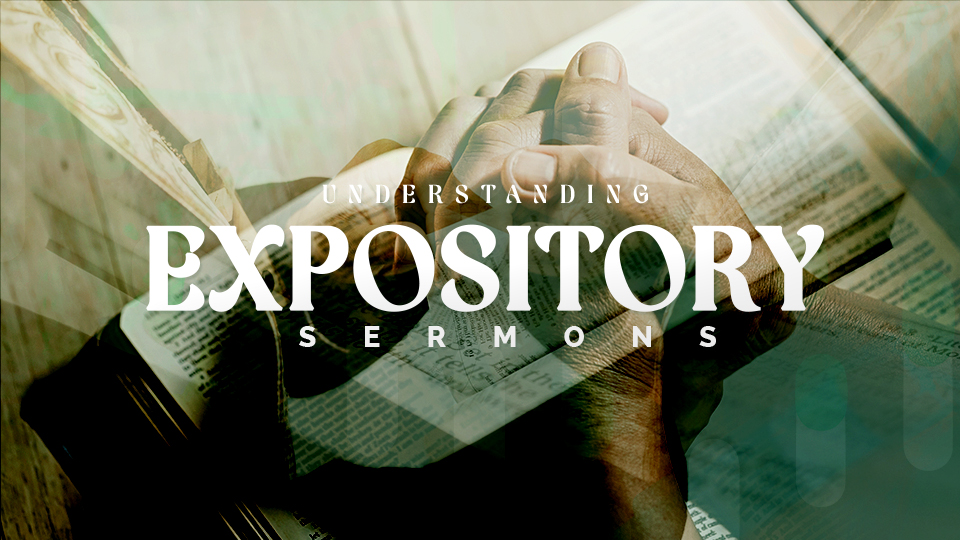Over the past few blog posts, we’ve explored different types of sermons. We’ve explored Textual sermons, which focus on a specific biblical text and its interpretation and Thematic sermons, which centre around a particular theme or topic and use various scriptural passages to support the main idea. Today, we’re diving deeper into Expository preaching. This type of sermon offers a rich and in-depth exploration of a specific biblical text. Expository preaching, at its core, is the art of systematically unfolding the meaning of a biblical text. It’s a method that seeks to unravel the author’s original intent, considering historical context, cultural nuances, and grammatical structures. By doing so, expository preaching aims to bring the Word of God to life, making it relevant and applicable to contemporary listeners. But how does it differ from other sermon types? And what are the key elements of an effective expository sermon?
The Key Elements of Expository Preaching
Expository preaching is a systematic approach to biblical exposition that typically involves examining a whole book of the Bible chapter by chapter and verse by verse. This method allows for a deep dive into the text, uncovering its original meaning and relevance to contemporary life. Several key elements are necessary for an impactful expository sermon. These include:
1. Thorough Bible Study
In-depth research: A comprehensive study of the biblical passage that includes a consideration of its historical context, cultural background, and grammatical structure is important so the original intent of the author isn’t lost.
2. Clear Exposition
The preacher clearly explains any unfamiliar words or phrases. Examples, analogies, or stories are also used to illustrate complex ideas. The usage of language that is accessible to a general audience is also important in passing the message of the text.
3. Practical Application
- Connect to contemporary life: The preacher shows how the biblical text relates to the challenges and opportunities of today’s world.
- Encourage action: Expositions challenge listeners to apply the principles of the text to their own lives.
- Provide guidance: Offer specific suggestions for how to live out the teachings of the text.
Historical Context and Examples
Expository preaching has a rich history, dating back to the early days of the Christian church. While the term “expository preaching” may be relatively new, the practice of systematically unfolding the meaning of Scripture has been a hallmark of Christian preaching for centuries.
Early Church Fathers: Many of the early Church Fathers, such as Augustine and Chrysostom, employed expository methods in their preaching. They often focused on the allegorical interpretation of Scripture, seeking to uncover hidden meanings and spiritual symbolism.
Reformation Era: The Reformation marked a significant shift in biblical interpretation, emphasizing the importance of the plain meaning of the text. Reformers like Martin Luther and John Calvin utilized expository preaching to challenge the authority of the Catholic Church and promote the primacy of Scripture.
Puritan Era: The Puritan movement in England and America further popularized expository preaching. Puritan preachers like John Bunyan and Richard Baxter were known for their detailed and systematic exposition of the Bible.
Modern Examples: Expository preaching remains a prominent method in contemporary Christianity. Many well-known preachers, such as John MacArthur, David Platt, and Tim Keller, have made a significant impact through their expository sermons. These preachers often focus on a specific biblical book, providing in-depth commentary and practical application.
The Benefits of Expository Preaching
Expository preaching offers numerous benefits for both preachers and listeners. Here are some of the key advantages:
For Preachers:
- Deepened understanding of Scripture: Expository preaching requires an in-depth study of the biblical text, leading to a deeper understanding of its meaning and significance.
- Improved communication skills: The process of preparing and delivering expository sermons can enhance a preacher’s communication skills, making them more effective in conveying complex ideas.
- Increased spiritual growth: Expository preaching can be a source of spiritual growth for the preacher as they delve into the Word of God.
For Listeners:
- Enhanced understanding of Scripture: Expository preaching provides a clear and comprehensive explanation of the biblical text, helping listeners to understand its meaning and application better.
- Spiritual growth: By applying the principles of the biblical text to their lives, listeners can experience personal and spiritual growth.
- Community building: Expository preaching can foster a sense of community and shared understanding among believers.
Challenges and Considerations
While expository preaching offers numerous benefits, it also presents certain challenges and considerations:
For Preachers:
- Time-consuming preparation: Preparing expository sermons can be time-consuming, requiring extensive research and study.
- Balancing depth and breadth: It can be challenging to strike a balance between an in-depth study of the text and providing a broad overview.
- Cultural sensitivity: Expository preaching may need to be adapted to different cultural contexts to ensure relevance and effectiveness.
For Listeners:
- Potential for dryness: Expository preaching can sometimes be perceived as dry or academic, particularly if the preacher fails to connect the text to the lives of the listeners.
- Need for patience: Understanding the biblical text can take time and patience, and listeners may need to be willing to invest effort in understanding the message.
Despite these challenges, expository preaching remains a valuable and effective method of biblical exposition. By understanding the key elements, benefits, and challenges of expository preaching, both preachers and listeners can maximize its impact.
In conclusion, expository preaching offers a powerful and transformative approach to biblical exposition. By systematically unfolding the meaning of the text, expository preaching provides a rich and in-depth understanding of God’s Word. It empowers both preachers and listeners to grow spiritually and deepen their connection to the faith. While it presents certain challenges, the benefits of expository preaching far outweigh the difficulties. As we continue to explore the art of preaching, expository preaching will undoubtedly remain a cornerstone of Christian worship.
